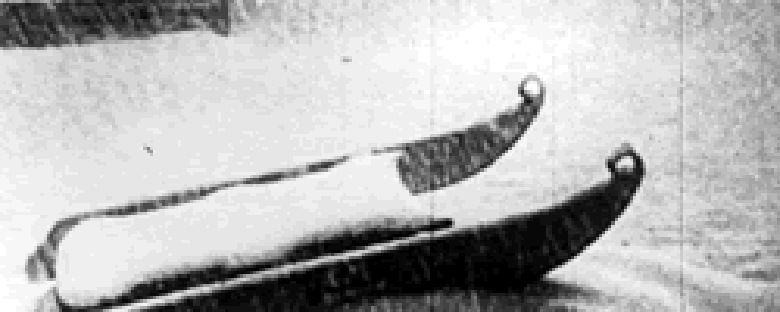Reviews
Orson Welles
USA, 1941
Credits
Review by Rumsey Taylor
Posted on 10 July 2004
Source Warner Home Video DVD
Charles Foster Kane — a name, like a president’s, whose social popularity disenables abbreviation — disregards his inheritance in part, keeping only a dwindling daily: “I think it’d be fun to run a newspaper.” Upon assuming his newfound role as a publisher, he makes his lack of knowledge and experience apparent — traits that supply his strengths. Kane’s inexperience fosters innovation; significantly, the same may be attributed to Orson Welles in helming Citizen Kane.
Filmmaking may be associated with Kane’s journalism rather freely. Both are arts of embellishment and inference, storytelling with images, slogans, and other propagandas. “If the headline is big enough it makes the news big enough,” says Kane in a testament of his journalistic intent, and the line is transcendent — it is analogous to the image of Kane at his news desk, professing hunger and, before a large meal, giving orders with a mouth full of food; he is a glutton for interesting press. Reporters strive to emphasize and import “Rosebud” as a final gesture that mystically summates a powerful man’s legacy. The detail is insignificant and even irrelevant, denotative of a childhood memory only he possessed. Its revelation is shared only with the viewer.
More significant as a metaphorical device than Kane’s final word, I would say, is the snow globe. It is a literal artifact of memory, enclosed, inaccessible, and only subtly reminiscent of the scene it is made to depict. It is like a memory hindered by age; in the words of a reminiscent Jedediah Leland, memory is “one of the greatest curses inflicted on the human race.” Amidst an exclusive and fantastic loot, Kane’s precious and tragic memory dies with him, shattered and available for no one to pawn.
Citizen Kane’s cinematography, acting, and direction are common grounds for laudation. Critiques of the film are routinely positive (mine will shortly be added to the tally), founding a critical foundation so durable I approach the film with resistance. It is, as a critical benchmark, unavoidable. Citizen Kane is an obviously remarkable and innovative film — this, I say, with knowledge of the film’s timeless influence: the laudation is a necessary toll.
Kane’s final resurrection of the fence that encloses Xanadu is contradictory and preachy. “No Trespassing” implies that a famous man’s life is his to withhold at his death, and it is seen after Kane is exploited. It is a final cop-out; notice he is the film’s namesake, and his point of view is withheld, his story told only through the memories and embellishments of those who judged him. As the film suggests, such commentary is unreliable and unsubstantial. But it makes for interesting press.
We don’t do comments anymore, but you may contact us here or find us on Twitter or Facebook.



